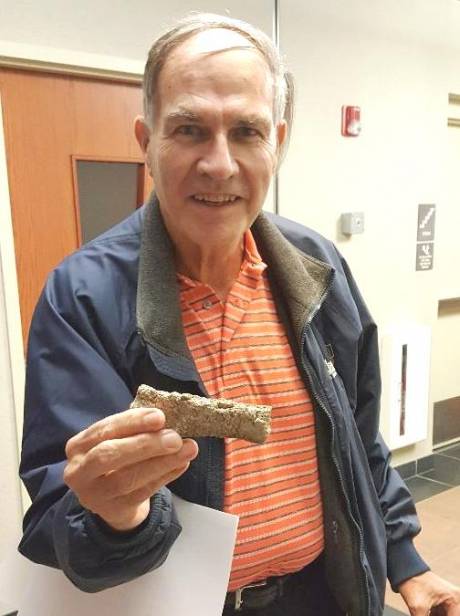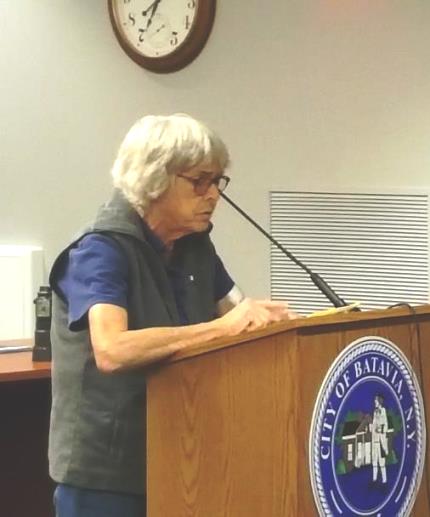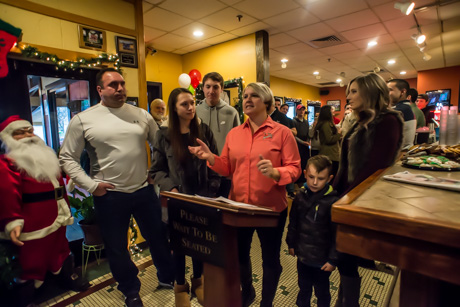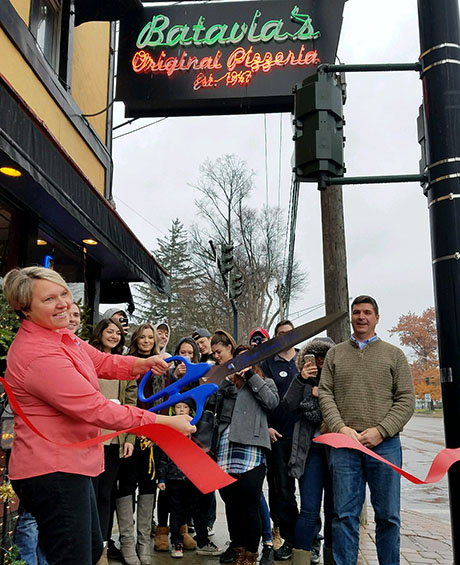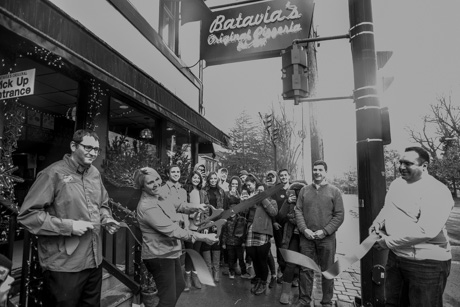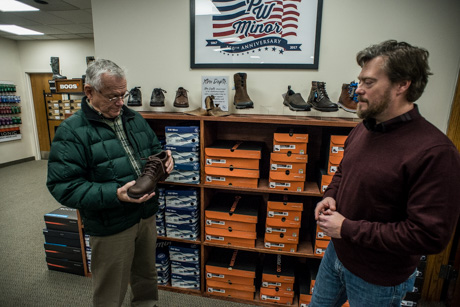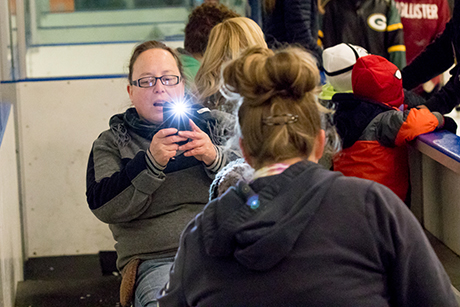Debate over Engine House redevelopment proposal reveals frustration, confusion
Batavia City Council members on Monday night voted to set a public hearing for the application of a $1 million grant to redevelop the vacant Genesee County-owned Old Engine House on Main Street but several of them did so with a bad taste in their mouths.
Council members Robert Bialkowski and Rose Mary Christian questioned the process -- "this came out of the blue," Christian said -- while Kathleen Briggs sought clarification on the county's role in the matter and Al McGinnis said the City should be looking at providing more single-family homes.
All in all, the debate at times revealed the board's misinterpretation of and confusion over the proposal to let developer Thompson Builds of Byron turn the former restaurant (and historic building) into a commercial-residential building.
Christian said she was aggravated by "nonprofits that don't pay any property taxes and school taxes, and that I had to read (about this) in the paper before we knew about it."
Council President Eugene Jankowski corrected her, stating that the grant is "pass-through money" and doesn't come from city coffers -- and that the project puts the property "back on the tax rolls."
Molino pointed out that the Restore New York Communities Initiative grant has to be applied for by a city, town or village, but Briggs still wondered "why the county doesn't do something about it?"
To which, Molino replied, "I think they are ... they're disposing of it (by declaring it as surplus property) and putting in back on the tax rolls."
That prompted McGinnis' comment about the City needing "to concentrate our efforts" on single-family homes, and Bialkowski stating he had problems with the process.
"I didn't know about it until reading it (in local media) and I have not seen an RFP (request for proposal)," Bialkowski said.
He also questioned how Thompson Builds was selected and that he felt rushed into having to set a public hearing on the same night as Council's first discussion about it.
His comments prompted Molino to apologize, but the City Manager noted that his Nov. 22 memo to Council was "in the media packet" and he didn't have any control as to when it would be published.
"Also, the county doesn't have to dispose of public property through an RFP," he said.
The plan outlined by Molino, after discussions with the Batavia Development Corporation, Genesee County and Thompson Builds, is to convert the 14,425-square-foot buildilng for business use on the first floor and residential use on the second floor.
The project is in line with current zoning code.
"Mixed use (Commercial-Residential) is part of the planning processes that we have had for downtown property, and we have a developer that is interested in rehabiliating it," Molino said.
He also said that there is a huge demand for downtown apartments and that the project would have to go through all "proper approvals," including planning boards and the Historic Preservation Commission.
Council members John Canale and Patti Pacino backed up Molino's contention regarding the demand for living space, with Canale talking about the lack of "places to rent at a reasonable price range" and Pacino noting that there is a "whole generation (millennials) that we're trying to attract back to Batavia -- young teachers, professionals ... who aren't ready to buy a house."
Bialkowski said he was surprised that no one from Genesee County was at the meeting.
"The county is asking the city to give them $1 million so why don't they have someone here?" he said.
To which, Councilman Adam Tabelski countered with the fact the city has the opportunity "to team with the county and a private developer to make that (putting it back on the tax rolls) happen."
After Jankowski again said that state regulations require the City to apply for the grant and schedule a public hearing, Bialkowski still wasn't convinced.
"We're applying for the grant, and the county is getting a million dollars," he said.
Molino said that the money would go to Thompson Builds to help fund the $2.5 million project, prompting Bialkowski to say, "so we're giving it to the developer."
Jankowski tried to put the whole matter into perspective.
"The benefit is that we're taking surplus property and putting it back on the tax rolls," he said, moments before all council members voted to schedule the public hearing for 5 p.m. Dec. 4.

